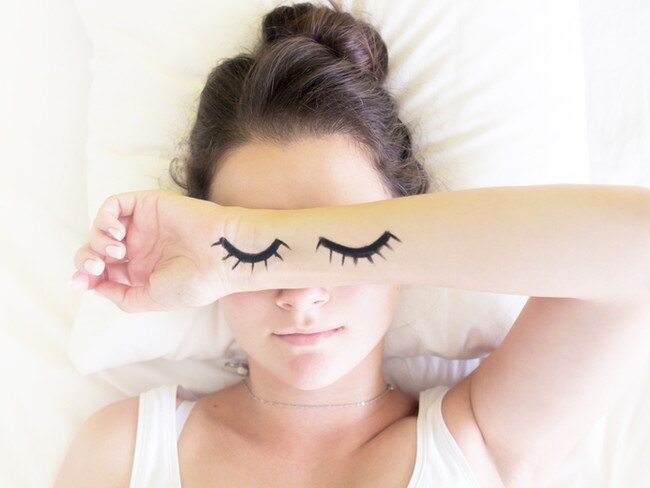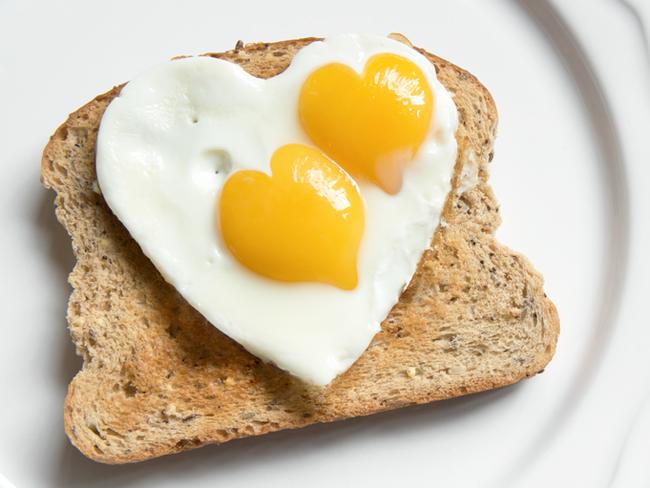This 50c kitchen staple is proven to help you sleep better
Science has found the cheap 50 cent bedtime snack that is proven to help you have the best sleep of your life — and it may surprise you.
Illness
Don't miss out on the headlines from Illness. Followed categories will be added to My News.
If you’re one of the millions of people who struggle to get a decent night of shut-eye, you’ve probably googled all the sleeping gizmos and gadgets, tried countless bedtime meditation exercises, or even tried rubbing magnesium on your feet.
But there’s now no need to fork out the cash on that $10,000 bed that claims to revolutionise your sleeping patterns, because all you need to do is reach into your fridge and grab an egg.
For more stories like this, go to bodyandsoul.com.au
Yes, your favourite brekkie staple has been proven to improve your sleep.
Dietitian Sharon Natoli reveals exactly why.
RELATED: 6 ways to beat insomnia naturally
RELATED: Hacks for people who swear they can’t day-sleep

Why do eggs help up sleep?
“Eggs, along with fish and nuts, are one of the highest dietary sources of melatonin, which has been shown to help people get to sleep and to stay asleep,” Sharon explains.
“It has been suggested that deficiencies in vitamins and minerals such as vitamin B1, folate, phosphorus, magnesium, iron, zinc and selenium shorten sleep duration. Additionally, a low intake of vitamin D is associated with difficulty maintaining sleep. All of these nutrients are found in eggs with eggs being a particularly good source of folate (49 per cent recommended daily intake per serve of two eggs), vitamin B12 (40 per cent RDI per serve) and selenium (59 per cent RDI per serve).”
How long before bed should you eat eggs?
“Two hours before going to bed is a good time to eat eggs.”
She suggests a boiled egg is the perfect light snack.
What is the best way to eat eggs to maximise its sleep benefits?
“Eating eggs as a light snack before bed rather than eating them as part of a large meal close to bedtime is best. Avoid eating them with other foods that may be high in saturated fat, like pastry, or with sugary foods (such as cakes) as high intakes of saturated fat and sugar may reduce overall sleep quality. Eating large meals close to bedtime can have a negative effect on sleep quality, too.”
Does this mean eating eggs for brekkie will make you sleepy during the day?
No, you can still enjoy your omelette and not fall asleep at your desk.
“The effect of eggs on sleep quality is most useful for those who have trouble sleeping, rather than causing drowsiness. If a person’s nutritional status is poor or their levels of melatonin are low, eating eggs may help them to improve their sleep quality by assisting to improve both of these areas.”
RELATED: ‘I tried sleeping with a weighted blanket to calm my anxiety’
RELATED: There are 9 different sleep types — which one are you?

Is it safe to eat eggs every day?
“As stated in the Australian Dietary Guidelines, there do not appear to be any increased health risks associated with consumption of eggs. Recent evidence has suggested that consumption of eggs every day is not associated with increased risk of coronary heart disease. I recommend eggs be eaten as part of healthy balanced diet including a variety of foods from the meat/fish/poultry/nuts/seeds and legumes food group.”
What are your top tips for getting a good night’s sleep?
• Avoid drinking caffeine (coffee, tea, hot chocolate, soft drinks) for at least four hours before bedtime
• Avoid eating large meals two to three hours before bedtime, and instead, try a light snack 45 minutes before bed if you’re still hungry
• Don’t skip brekkie or eat at irregular times on a daily basis
• Enjoy a wide variety of fruits and veggies — think apples, oranges, kiwi, apricot, broccoli, spinach, red capsicum, and tomato
• Swap white bread for wholegrain
• Minimise sugar and processed foods aka chocolate (soz)
• Exercise regularly.
For more stories like this, go to bodyandsoul.com.au
Originally published as This 50c kitchen staple is proven to help you sleep better
